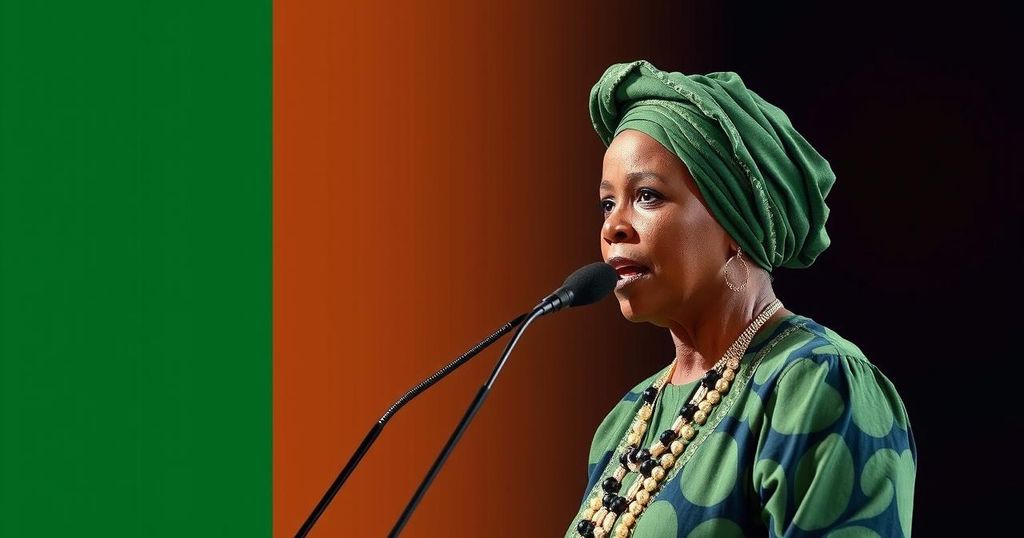Namibia Votes in Presidential Election: A Chance for Its First Female Leader
Namibia is voting in a presidential election that could see Netumbo Nandi-Ndaitwah become the nation’s first female leader. As the current vice president and SWAPO party candidate, she leads following early voting results. However, SWAPO faces challenges due to high unemployment and growing public dissatisfaction, reflecting regional electoral trends. Approximately 1.4 million citizens are registered to vote for both the presidency and Parliament, with other candidates also in contention.
Namibia is currently conducting a presidential election, presenting a significant opportunity for the nation to potentially elect its first female leader. Netumbo Nandi-Ndaitwah, a prominent figure who participated in the independence movement during the 1970s, stands as the leading candidate. As the existing vice president and representative of the ruling SWAPO party, she secured a strong leading position following early voting results. However, despite her candidacy, SWAPO is experiencing waning popularity, particularly amidst rising discontent related to high unemployment and economic challenges that disproportionately affect the youth.
Compounding the situation, Namibia’s recent electoral landscape mirrors trends observed in neighboring countries where established ruling parties have suffered unexpected electoral defeats due to economic dissatisfaction. Noteworthy events include South Africa’s ANC, Botswana’s ruling party, and Mauritius, all experiencing significant losses this year. Approximately 1.4 million Namibians are registered to vote in this election, which also includes fourteen other candidates, among them Panduleni Itula, who previously posed a challenge to SWAPO. A runoff election will be triggered if no candidate receives over 50% of the votes, a scenario not yet encountered in the country’s electoral history.
The political atmosphere is further complicated by the death of President Hage Geingob earlier this year, which resulted in his vice president, Nangolo Mbumba, assuming the presidency. Despite the political upheaval, Nandi-Ndaitwah’s platform includes ambitious plans to mitigate unemployment and enhance job opportunities for the country’s youth, alongside addressing women’s rights issues, including reproductive rights and equal pay. However, skepticism exists regarding the feasibility of her proposed initiatives, including the creation of over 500,000 jobs within a financially outlined $4.7 billion investment over the upcoming five years. As Namibia navigates this electoral period, the outcomes could significantly impact the nation’s political and social framework.
Namibia, a country situated along Africa’s southwestern coast, gained independence from apartheid South Africa in 1990 and has since been governed by the SWAPO party. The current political landscape is marked by increasing public discontent due to high unemployment rates, especially among the youth. This election is pivotal not just for its potential to elect the country’s first female president but also as a reflection of broader electoral trends in the region, where established parties are facing unprecedented challenges. The socioeconomic issues at the forefront, particularly unemployment and women’s rights, are critical as Namibians head to the polls.
The presidential election in Namibia represents a crucial juncture for both gender representation in leadership and the nation’s response to pressing economic challenges. Netumbo Nandi-Ndaitwah’s bid for the presidency comes against a backdrop of public dissatisfaction with the ruling SWAPO party’s governance. As the electoral process unfolds, the implications for Namibia’s future leadership and socioeconomic direction remain significant, particularly in defining the role of women in a traditionally male-dominated political landscape.
Original Source: abcnews.go.com




Post Comment